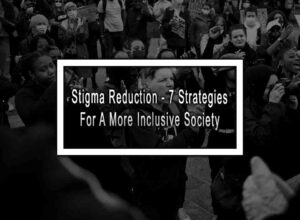Table of Contents
ToggleCope With Depression: Awesome Techniques to Combat Depression!
Depression is a common mental health condition affecting millions worldwide. Although it may seem overwhelming at times, there are effective coping strategies that can help alleviate its impact on your life. In this article, we have compiled expert advice and practical tips to boost your well-being. From self-care practices to seeking professional help, let’s dive into these empowering techniques for combating depression.
1. Engage in Regular Exercise
Physical activity not only improves your overall health but also uplifts your mood. Incorporating exercise into your routine releases endorphins, the “feel-good” hormones, which can combat feelings of sadness or anxiety.
2. Nurture a Supportive Social Circle
Surrounding yourself with positive and understanding individuals can make a huge difference in your journey. Collaborate, join support groups, or reach out to loved ones who create a safe space for you to express your feelings without judgment.
3. Prioritize Self-Care
Taking care of yourself is vital when dealing with depression. Engage in activities that bring you joy, such as practicing mindfulness, reading, or pursuing hobbies. Remember, self-care is not selfish; it’s a necessary part of maintaining emotional well-being.
4. Establish a Consistent Sleep Routine
Quality sleep can significantly impact your mood and mental health. Aim for a regular sleep schedule, create a relaxing bedtime routine, and ensure your sleep environment is conducive to restful slumber.
5. Focus on Balanced Nutrition
A well-balanced diet plays a crucial role in managing depression symptoms. Incorporate nutrient-rich foods like fruits, vegetables, whole grains, and lean proteins. Avoid excessive caffeine or sugar as they can negatively affect your mood.
6. Practice Mindfulness and Meditation
Mindfulness and meditation techniques can help control negative thoughts, decrease stress levels, and improve overall well-being. Set aside time each day to engage in these practices and explore different guided meditation apps or resources.
7. Seek Professional Support
Don’t hesitate to consult a mental health professional who can provide valuable insights and tailor treatments to your specific needs. Therapies like cognitive-behavioral therapy (CBT) or medication can be highly effective in managing depression.
8. Establish Realistic Goals
Setting achievable goals, both short-term and long-term, can provide a sense of purpose and accomplishment. Remember to break larger tasks into smaller, more manageable steps to avoid feeling overwhelmed.
9. Limit Stress Triggers
Identify and address sources of stress in your life. Whether it’s reducing workload, delegating tasks, or practicing relaxation techniques, actively seek strategies to minimize stress and its impact on your mental health.
10. Cultivate a Positive Mindset
Challenge negative thoughts and reframe them with positive affirmations. Practice gratitude and optimistic thinking, as it can gradually reshape your perspective and boost your emotional well-being.
Conclusion
Depression doesn’t have to define your life. By implementing these strategies and seeking professional help when needed, you can combat its effects and regain control. Remember, everyone’s journey is unique, so it’s essential to find the coping techniques that work best for you. Let’s embark on this path together, supporting one another in the fight against depression. Stay strong, stay positive!
Cope With Depression FAQ
Here are the most common questions about coping with depression.
1. Is there a cure for depression?
Depression is a complex condition and does not have a definitive cure. However, through proper treatment, many people with depression are able to successfully manage their symptoms and live fulfilling lives.
2. Can exercise help with depression?
Yes, regular exercise has been shown to have positive effects on mood and can help alleviate symptoms of depression. Exercise releases endorphins, which are natural mood boosters, and also provide a sense of accomplishment and routine, which can improve mental well-being.
3. Should I tell others about my depression?
It is a personal decision whether to disclose your depression to others. However, sharing your struggles with trusted friends, family members, or healthcare professionals can provide support and help you feel less alone. It is important to confide in someone who will be understanding and non-judgmental.
4. How long does depression typically last?
Depression can vary in duration. Some episodes may last a few weeks or months, while others can persist for years. It is important to seek help from a healthcare professional to determine the severity and duration of your depression and develop an appropriate treatment plan.
5. What should I do if I or someone I know is experiencing thoughts of suicide?
If you or someone you know is in immediate danger or experiencing thoughts of suicide, it is crucial to seek help immediately. Contact a mental health helpline, a healthcare professional, or emergency services in your country for assistance.












